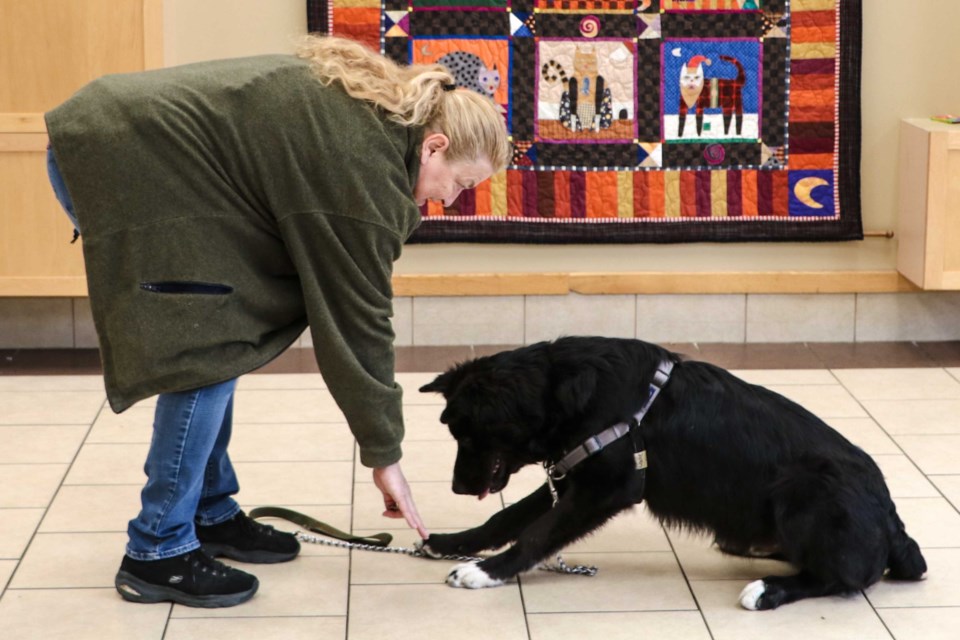By Janaia Hutzal
There are as many boxes to be checked off before signing your dog up for an obedience or training class as there are different types of dog trainers. To help make a decision, the first question to ask a potential trainer should be, “How do you modify behaviour?”
The answer you are looking for is positive reinforcement and reward-based methods, where the dog is set up to succeed and then rewarded for performing the “good” behaviour.
This type of training makes learning enjoyable for the dog and enhances the relationship between the dog and handler. While looking for the word positive, be sure that it is used with reinforcement and not “positive punishment,” which is decreasing a behaviour by adding something – often pain. Avoid trainers who use words such as dominance, intimidation and aversive tools, such as prong or choke collars.
A study published in the Journal of Veterinary Behavior on the effects of using aversive training methods in dogs, showed that these methods can “jeopardize both the physical and mental health of dogs” and that positive reinforcement is more effective.
Because the dog industry is not regulated, it leaves the door wide open for self-proclaimed trainers, some of whom charge large amounts of money for little results. Falling into this trap can be avoided by checking credentials and speaking with past clients.
When inquiring about certifications, again be sure that the organization of affiliation is also positive reinforcement based. You can contact the organizations themselves, some of these include: Certification Council for Professional Dog Trainers (CCPDT), The Association of Professional Dog Trainers, Karen Pryor Academy for Animal Training & Behaviour, or the International Association of Animal Behavioural Consultants, and ask for information about their standards and about the dog trainers in your area.
Whether you are bringing an older dog or new puppy into your family, one of the best ways to build a lasting bond of trust is through understanding. A good dog trainer will demonstrate a strong understanding of animal behaviour, signals and body language.
As much as you are doing your homework about your trainer, the trainer should also be asking questions about your dog. Past history can provide crucial information when handling a dog. For serious behaviour issues, experience and expertise are important. Some trainers specialize in specific behaviour problems, while others won’t handle issues such as aggression.
Once enrolled in a class, the tools learned can be brought back and taught to the entire family. Whether or not you would allow a child to perform or apply the methods being taught, may also help direct your choice of trainer. Remember, if it doesn’t feel right it probably isn’t.
All instructors at Cochrane & Area Humane Society (CAHS) are certified through the CCPDT, which requires passing a comprehensive exam, have at least 300 hours of dog training experience and regular recertification. Positive Approach Canine Education (PACE) is the training program offered at CAHS, and is designed to assist in preparing students to become certified through the CCPDT.




